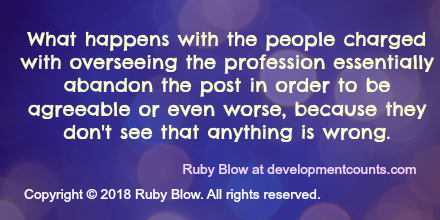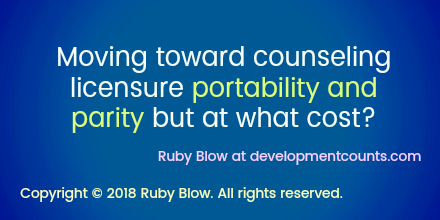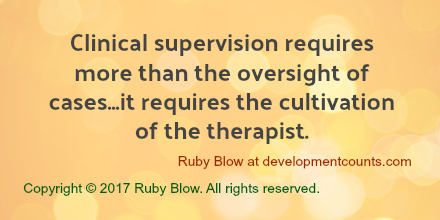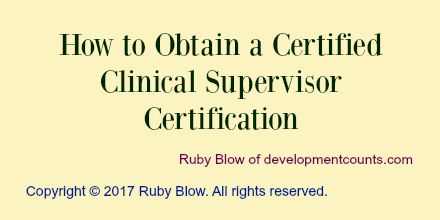Counselors, Social Workers and Marriage & Family Therapists
I often hear from people considering entering the field of mental health. Generally speaking, the people I hear from are changing professions or they extending their career from a related professional background in education, social services or the non-profit sector. They are interested in advisement about which field of study is best for them.
It can be confusing to say the least. Many people who identify as mental health professionals themselves have limited knowledge about the similarities and differences between the three allied professions. Even worse, a competitiveness can exist between the respective groups. This includes power struggles among and between professional associations, licensees and licensing boards over legislation governing the professions, as well as other factors like insurance paneling and areas of specialization.
Counselors, Social Workers and Marriage & Family Therapists are all professions with their own distinctive training programs and traditions.
What is Professional Counseling?
Counseling is a diverse field which grew out of a demand for services for the “wounded well.” Counselors work from many of the same theoretical models as psychologists who are born from the field of psychology. Counseling has:
- an interest in prevention,
- an understanding of people from a developmental perspective,
- an underlying value of people’s right to self-determination,
- and the promotion of wellness as opposed to simply the elimination of “illness.”
Many counselors work with those who have diagnosed mental disorders. However, counselors also work in schools, rehabilitative settings, hospitals, substance abuse settings, etc. In those areas of practice, certifications are promoted. Counselors can become:
- certified school counselors,
- certified rehabilitation counselors,
- certified addiction counselors and so on.
Certification is evidence of specialty knowledge and skills. Certifications are generally offered through professional organizations and acknowledged by institutions like schools, 3rd party payers and employers.
Licensure is different from certification in that licensure is issued by the state and it allows people to practice independently. The purpose of licensure is to monitor the profession and set guidelines and standards to protect the public from harm.
Professional counseling is the newest of the three allied professions. In Georgia, we are referred to as Licensed Professional Counselors. In other states, various titles are used and include Licensed Professional Clinical Counselor (LPCC), Licensed Mental Health Counselor (LMHC) and so on.
In many states there are two levels of licensure. The first would technically be considered “pre-licensure” and the second “independent licensure.” Someone who is pre-licensure has the requisite degree and they are obtaining their supervised clinical experience toward independent licensure.
Independent licensure is the right to practice in that state independent of oversight by a clinical supervisor. In Georgia, our pre-licensure status is called Associate Professional Counselor. In other states they may use titles such as “Registered Intern.”
One of the biggest challenges in counseling right now is the development of reciprocity across states. There is a growing need and interest in creating standards that would be the same across states. This would allow counselors to move and obtain their license in their new location.
In many states, Counseling, Social Work and Marriage & Family Therapy licensees are governed by the same licensing board. However in some states they may have separate boards. In some states the balance of power on the respective licensing board(s) and the requisite state laws are evenly distributed. In other states 1 of the 3 professional groups may have more power over the other professions.
This power would involve determining their standards for licensing and what rights they have in their practice. For example, in Georgia, Counselors are allowed to practice in areas where they have developed competency such as providing marriage/couples or family counseling. However, in Nevada, only licensed Marriage & Family Therapists are allowed to offer marriage/couples counseling.
Becoming a Professional Counselor
To become a professional counselor you must complete a masters, specialist or doctoral degree in the field. When selecting a program, it is increasingly important that the program is Council for Accreditation of Counseling & Related Education Programs (CACREP) accredited.
Counseling programs should offer the academic coursework that incorporates a practicum/internship experience.
Counseling degrees can be obtained from traditional Universities and from for-profit Universities. There are advantages and disadvantages to both.
- Traditional programs admit fewer students and are able to offer more affordable tuition rates. Students need to take the Graduate Record Exam (GRE) as part of the admission process.
- For-profit or non-traditional privately held programs admit larger numbers of students into each class. Students do not have to take the GRE. They are admitted on a provisional basis and remain in the program based on their academic performance. Their tuition rates tend to be much higher.
National Board of Certified Counselors
For those interested in becoming counselors, the best single source of entry would be the National Board of Certified Counselors (NBCC). Sometimes people start with searching for degree programs first. However, I think people should go to NBCC to find the link to the state licensing board that governs the location where they intend to practice.
Once the state licensing board has been identified, one can best determine the journey ahead. Many people presume that they will go to graduate school and that the graduate school will provide them guidance into the profession.
Many graduates find themselves lost and directionless after they finish their degrees — especially if they completed a distance degree program. Many don’t know that finishing graduate school is just the beginning and not the end of the process.
Most – if not all – states are now using the National Counseling Exam (NCE) or National Clinical Mental Health Counseling Exam (NCMHCE) as their licensure exam. The NCE and the NCMHCE are managed by the NBCC. In a future blog post I will explore preparing to take the licensing exam.
My general advice would be to take the licensing exam at end of graduate school via your University if your program offers it.
National Associations
The ethics that counselors learn in their graduate studies are developed by the American Counseling Association (ACA). The ACA has-
- an annual conference,
- some state chapters,
- a publication branch, and
- professional journals.
There is a growing segment of counseling that is focused on clinical treatment. Clinical mental health involves a specialization in the treatment of mental disorders. The American Mental Health Counselors Association (AMHCA) is a great resource for counselors practicing clinically. They have a annual conference and many state chapters. In Georgia, the state chapter is the Licensed Professional Counselors Association of Georgia (LPCA-GA).
Making the Right Choice for You
I recommend that those interested in the field of mental health or those who know they want to become Psychotherapists explore all three of these professions before making a decision. Your decision should be based on what you want to do when you obtain the license to practice and who you want to serve. You will need to learn more about what is allowed in your state.
You can learn more by talking to professionals already working in the area that you want to practice. If they are in private practice and you don’t have a pre-existing relationship, then you should consider offering to pay for an hour of consultation to learn more from them about their entry into the profession and what they would do differently if they had the opportunity. You can learn a lot from their suggestions, but don’t be presumptive that they will give you their time. For many counselors, an hour of their time is a billable hour that they can not necessarily afford to give away.
Copyright © 2017 Ruby Blow. All rights reserved.
Share your thoughts on Linkedin, Facebook, Twitter or log in to one of your accounts below to comment. Subscribe to my YouTube channel.





